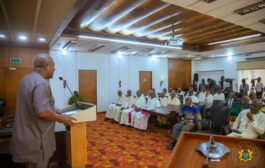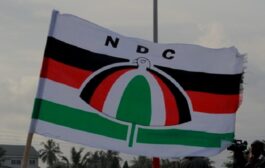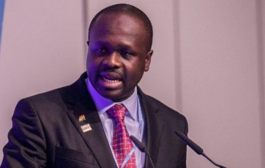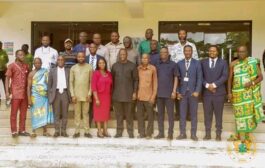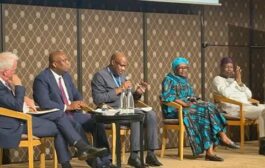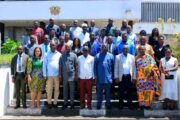Ghana is commemorating International Anti–Corruption Day (IACD) today, Thursday, 9th December 2021 theme: “Building a Culture of Integrity for Generations”.
Ghana, in 2014, adopted the National Anti-Corruption Action Plan (NACAP) as the coordinated anti-corruption policy of Ghana which was in line with Chapter six of the 1992 Constitution, on the Directive Principles of State Policy, which provides under Article 34(8) that “The State shall take steps to eradicate corrupt practices and abuse of power”.
Ghana began the 2021 Anti-Corruption and Transparency (ACT) Week and the International Anti–Corruption Day (IACD) commemoration from December 6th and will end tomorrow, 10th December 2021.
The five-day program was sought to raise ‘People of Integrity,’ not only for the current generation of leaders and working population, but for students, children, and future generations.
Through the implementation of the National Anti-Corruption Action Plan (NACAP) awareness of the evils of corruption and mechanism for reporting corrupt offenses which included whistleblowing had increased.
The United Nations (UN) is assisting countries and communities to address the underlying causes of corruption that is estimated to cost $2.6 trillion annually.
The United Nations Convention against Corruption is the only global anti-corruption instrument that contributes to the achievement of the 2030 Agenda by fostering accountability, integrity, and transparency.
Corruption schemes involving large amounts of money and high-level officials nearly always stretch across multiple borders.
Corruption is a complex social, political and economic phenomenon that affects all countries. Corruption undermines democratic institutions, slows economic development, and contributes to governmental instability.
Corruption attacks the foundation of democratic institutions by distorting electoral processes, perverting the rule of law, and creating bureaucratic quagmires whose only reason for existing is the soliciting of bribes. Economic development is stunted because foreign direct investment is discouraged and small businesses within the country often find it impossible to overcome the start-up costs required because of corruption.
On 31 October 2003, the General Assembly adopted the United Nations Convention against Corruption and requested that the Secretary-General designate the United Nations Office on Drugs and Crime (UNODC) as secretariat for the Convention’s Conference of States Parties (resolution 58/4).
The Assembly also designated 9 December as International Anti-Corruption Day, to raise awareness of corruption and of the role of the Convention in combating and preventing it. The Convention entered into force in December 2005.
Source: Mybrytfmonline.com/Kofi Atakora























